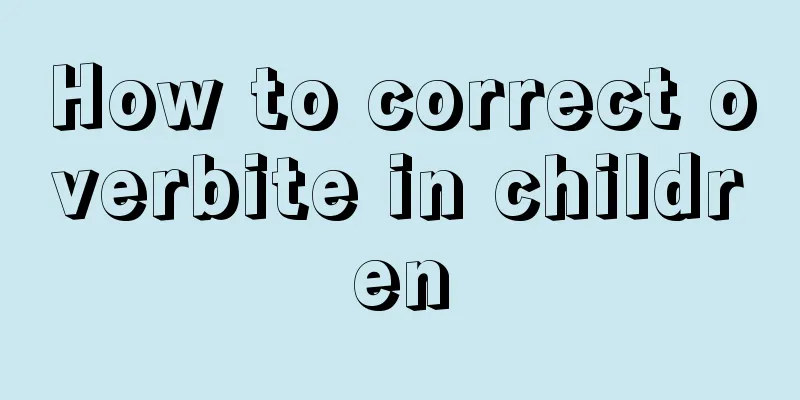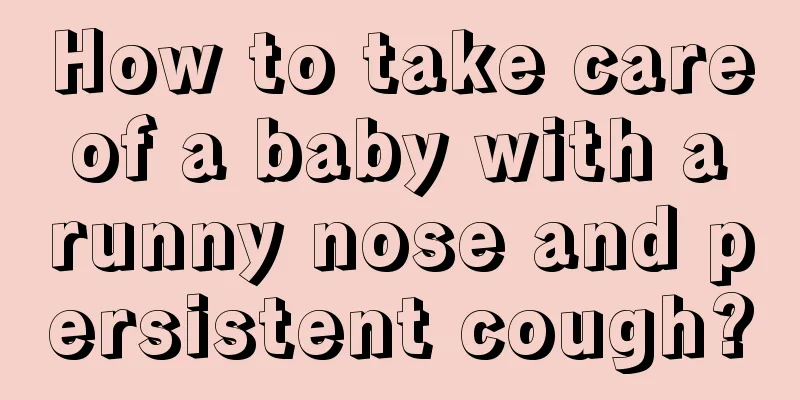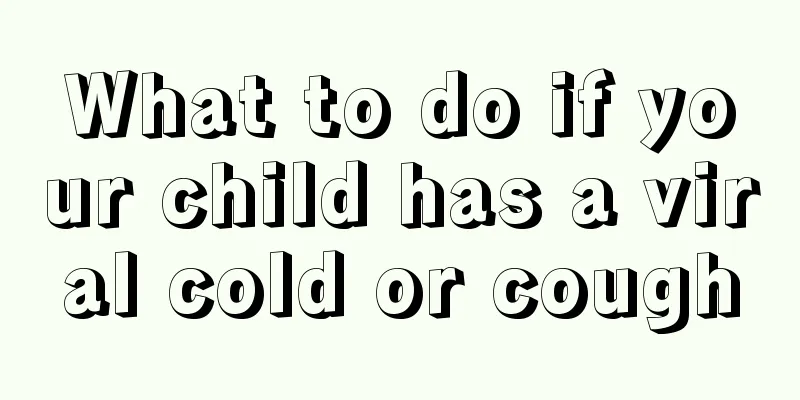What to do if a newborn baby has a collapsed nose

|
Many parents will find that newborns will have various adverse reactions after they come into the world, among which a collapsed nose is a common one. A newborn's collapsed nose may be caused by a certain disease or incomplete development. Regardless of the cause, parents need to pay special attention to it and take timely measures to adjust it. So let’s take a detailed look at what to do if a newborn baby has a collapsed nose. Babies gain weight fastest in their early years, and what we see is a "full moon face". At this stage, the flat nose bridge and wide distance between the eyes are very obvious, and some nostrils are even pointed upwards. In fact, except for genetic metabolic diseases, this is a normal appearance feature of children. After the baby's anterior fontanelle closes at the age of 1 to 1.5 years, the facial and nasal bones begin to grow and develop rapidly, and the bridge of the nose slowly grows out. The changes in the nasal bones are affected by hormone secretion and will continue to develop until puberty when they mature. In addition, the height of the nose bridge should also take into account factors such as genetics, development speed, early nutrition, and nasal trauma. Because the bridge of the nose of children is cartilage tissue, and the nasal mucosa is delicate and rich in blood vessels, frequent pinching will damage the mucosa and blood vessels, reduce the defense function of the nasal cavity, and make it easy to be invaded by bacteria and viruses. In addition, children's Eustachian tubes are thicker, shorter, and straighter. Pinching the nose randomly can cause secretions in the nasal cavity to retrograde through the Eustachian tube into the middle ear, causing otitis media. Some children may have a low nose bridge which may be a sign of disease. They should seek medical attention in time instead of pinching the nose bridge. This situation is often accompanied by slow physical development and intellectual retardation. Tips for newborn nose care 1: cleaning nasal mucus The mucous membrane of the nose is very delicate. If the cotton swab is inserted too deeply, it will damage the mucous membrane, so parents need to be extra careful. Just insert the tip of the cotton swab into the nose to remove visible nasal mucus. If the secretions are located deeper in the nasal cavity, a siphon suction device may be used to help clear them more easily. Tips for newborn nose care 2: Treating nasal congestion When the baby has a stuffy nose, you can put hot gauze or towel on the baby's nose, or use bath time to massage the baby's nose, so that the hot air can enter the nostrils, and the nasal mucus will naturally loosen. If it really doesn't work, you can use a wet cotton swab to rotate it inside the nose to remove the secretions. Newborn nose care tips three: cleaning the nose Pay attention to safety when cleaning. When there is a lot of secretions in the nasal cavity, do not use hairpins or matchsticks to pick it out to avoid injuring the nasal mucosa. If the booger is at the opening of the nostril, it can usually be pulled out, but the action must be gentle. If the booger is close to the middle of the nasal cavity, you can first moisten it with a cotton swab dipped in warm water, then roll it out after the secretions are moistened, or wait for it to come out by itself when the child sneezes. |
<<: Newborn baby always cries before pooping
>>: There is a hard lump on the newborn's neck
Recommend
Will the fever caused by leprosy vaccine recur?
As children grow up, they need to be injected wit...
How to cut newborn baby's nails
When a newborn is just born, all parts of the bod...
What are the symptoms of high muscle tone in children?
Human muscle tone should be maintained within the...
What are three ways to change a child’s carelessness?
When tutoring children with homework, parents oft...
Asperger's syndrome
The symptoms of patients with Asperger's synd...
What should I do if my child has a low-grade fever for two days?
Under normal circumstances, for many people, the ...
Can drinking milk help you grow taller at the age of 16?
Many people usually drink milk, and they drink mi...
Introduction to sleeping positions for newborns
Everyone's sleeping position is different. Th...
Do babies need to wash their mouths?
When a newborn is just born, it has not yet grown...
Children's recipes for nourishing and moistening the lungs
We may often see some babies and children in our ...
How to check if your baby has yellow eyes
In fact, in daily life, many people who have just...
Symptoms of heart muscle damage in children
Children are not as strong as adults due to their...
Two and a half year old baby walks with a limp
As the baby grows up day by day, he learns more a...
What should I do if my baby has green stools during the confinement period?
After giving birth, the mother may not take good ...
Consequences of high fever convulsions in children
Children are most susceptible to fever. On the on...









